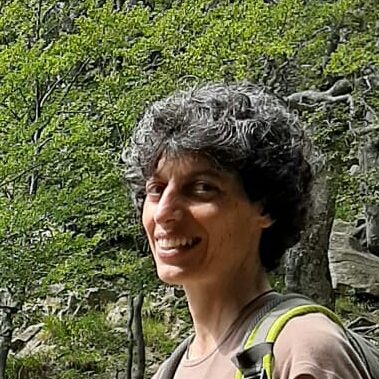By Raffaella Simonetti, Dr Steven Landau MD

Who would like to be treated by a doctor who is not always coherent, reliable and honest and with rude manners?
I don’t think anyone would. When it comes to putting our health in someone’s hands, we need to find a person who knows how to listen and recognize our state of mind without judging us. We need a sincere person to help us looking at our situation objectively. And because showing what can be unbalanced in our bodies and in our lives makes us vulnerable, we also want that doctor to be honest. We spontaneously look for a physician, our assistant, who is as prepared as possible and who also has within himself/herself those human qualities that at the same time cure even at deeper levels our emotions, our feelings, our soul. We feel safe when the professionals we rely on have a clear and ethical vision that guides them in their work. Their vision also illuminates us and our journey.
We often forget that, as Democritus said, we are first and foremost the architects of our health. It is we who make the daily choices that determine it. It is we who are called by our innermost being to seek the path to well-being and happiness. Therefore, if we are ourselves the main “professionals” of our inner and outer joy, in our journey we need to rediscover the same characteristics that we seek in doctors and external helpers. Will we trust ourselves in this delicate inner path of self-knowledge and self-realization if our behavior is sometimes inconsistent, uncontrolled, unclear and untruthful?
Once again, I don’t think so. We will gradually advance in disclosing our deepest being only when we feel that we have settled at the same pace those qualities that make us welcoming, reliable and responsible for ourselves, as well as for others.

In the path indicated by Tantra Yoga, first by Maharshi Patanjali and updated by Tantra Gurudev Shrii Shrii Anadamurti, these qualities are developed through the practice of Yama and Nyama. Yama includes the five ethical-moral principles that guide us in social behavior. Nyama is the set of the other 5 principles that regulate the inner conduct. By relying on these indications and putting them into practice in everyday life for months and years, little by little we get rid of those attitudes that we don’t want to see in others either, and we begin to look more and more like the people we value.
The one who is more aware of our change is our deeper and more intimate being, that little by little, begins to “trust us”, to disclose itself to our knowledge, and reveals the ancient wounds buried in the unconscious, and lets us help it to heal.
In this way, harmony returns and manifests itself both from the outside, through the practice of Yama, and from the inside through Niyama, enabling the rediscovery of our True Being.
A brief description of medically tweaked Yama and Niyama guidelines is listed below, and a fuller description may be found in Anandamurtijii’s book entitled “A Guide to Human Conduct,” also available in Hindi, Bengali, and other Indic languages under the title “Jiivana Veda.”

1. YAMA (intro-external controls)
a. Ahimsa—noninjury by thought, word, or deed (“First, do no harm” is a primary medical dictum). This does not preclude violence used in defending oneself or others.
b. Asteya—abandoning the thought of stealing or of depriving someone of their due (keep clear of fraudulent prescription writing).
c. Satya—benevolent truthfulness—action of mind in the right use of words with the spirit of welfare (the “art” of medicine: what do I tell, to whom, and when? Tell someone “You look great!” even though they’re looking feeling terrible, so they’ll actually start looking and feeling better).
d. Brahmacharya—looking upon everything as a manifestation of Consciousness, and not just as the crude form (the holistic approach—we’re not just bodies and chemicals).
e. Aparigraha—non-indulgence in those material amenities that are superfluous to the maintenance of life (with due regard to the prevailing standard of living in the society at large).
2. NIYAMA (extro-internal observances)
a. Shaocha—purity and cleanliness, mental and physical (wash your hands often. Wash your mind often too. Stand guard at the doors of your mind to not let anything enter that might pollute it).
b. Santosha—contentedness with the fruits of reasonable labor (no more 80-hour work weeks, if we can help it).
c. Tapah—willingly undergoing pain for the benefit of others. Service without thought of reward, just because you recognize the Supreme in the object of your service (we all do indigent care, at home or abroad).
d. Svadhyaya—scriptural study with a view to understanding the underlying meaning (read your journals).
e. Iishvarah Pranidhana—chasing the Supreme—establishing oneself in the Cosmic Shelter; looking upon oneself as the instrument rather than as the doer (“I will lead my life and practice my art in purity and holiness” –Hippocratic Oath)
Ms. Raffaella Simonetti is a Yoga Teacher for childrenin Italy
Dr Pashupati Steven Landau MD is a Board Certified Family Practitioner of Medicine in Greensboro, North Carolina, USA.



Very nice article Congratulation to both Drs Steven Landau in addition to being a medical professional is also an Acharya of Ananda Marga and President of Ananda Marga Relief team in New York sector